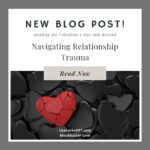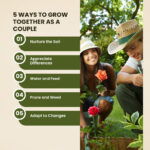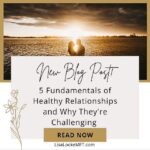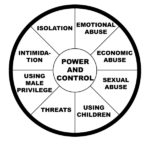Every couple has their differences, but sometimes those differences feel bigger than others.
One partner wants to go out every weekend—dinner, dancing, or just being around people.
The other would rather stay home in comfy clothes with takeout and a movie.
Neither is wrong, but when these preferences clash often enough, it can start to feel personal.
“You never want to do anything.”
“You’re always dragging me out.”
Sound familiar?
This isn’t just about socializing—it’s about emotional wiring. And when couples learn how to navigate those emotional differences with empathy, they can actually grow closer.
Same Scenario, Totally Different Needs
Let’s break it down:
- The extroverted partner might feel energized by people. Being out in the world fills their cup. They might feel bored or disconnected when they stay home too often.
- The introverted partner may need quiet and space to feel grounded. Too much stimulation or small talk can drain them—and leave them feeling anxious or even resentful.
So what feels fun and exciting to one, feels exhausting or even threatening to the other.
And that’s not a personality flaw—it’s an emotional difference.
Why This Stuff Matters
Our nervous systems react differently to the same environments. What soothes one person can overstimulate another. And if we don’t talk about those differences with curiosity and care, they can quickly turn into blame, distance, or quiet resentment.
But there’s another way.
5 Ways to Navigate Emotional Differences (Without Resentment)
- Name the Need, Not the Complaint
Instead of saying, “You never want to go out,” try:
“I feel more connected to the world when we go out together.”
And instead of, “You’re always dragging me around,” try:
“I need downtime to feel like myself again.”
Lead with your need, not your partner’s behavior.
- Co-Create a Rhythm That Honors Both Energies
Alternate weekends out and in. Or choose social activities with built-in quiet time—like a walk, a museum, or a dinner with just one or two close friends. There’s usually a middle ground when you look for it together.
- Don’t Take It Personally
If your partner needs more alone time or more social time, it doesn’t mean they love you less. It means they’re trying to regulate their own energy. When you see their behavior as self-care—not rejection—you’ll be less likely to feel hurt or triggered.
- Be Honest About Your Capacity
Sometimes we say “yes” just to please and then build resentment quietly. Instead, try saying:
“I want to show up fully for you, and I can do that better if we plan something low-key tonight.”
Mutual honesty prevents burnout—and builds trust.
- Appreciate the Difference
The truth is, opposites can balance each other out. The outgoing partner helps you stretch. The quieter one helps ground you. When you learn to appreciate—not resist—each other’s differences, the relationship deepens.
Final Thought
You don’t need to be the same to be strong. You don’t need to have all of the same interests and emotional responses to have a healthy and lasting relationship.
You just need to understand, respect each other, and work as a team.
When you make space for emotional differences—whether it’s social energy, spending habits, or anything in between—you create a relationship built on respect, not resentment.
And that’s what real connection looks like.










